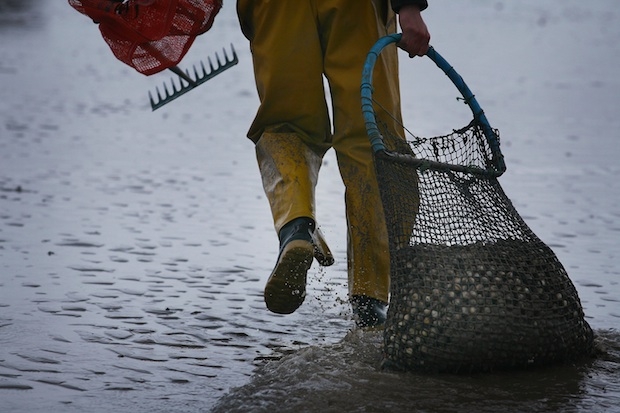It has been 200 years since Britain abolished the slave trade and sent the Royal Navy out to enforce the ban across the world. Times have changed. Yet slavery at home and abroad is booming like nothing else. Theresa May knows this. It’s no wonder that alongside the chaos of Brexit negotiations she has made it her mission to fight what she calls ‘the great human rights issue of our time’. As the longest-serving home secretary for decades, she understands the nature of this barbaric business.
Last week, the Prime Minister made her latest move to combat modern slavery. She convinced six Gulf countries to sign up to the WeProtect Global Alliance – a British-led international coalition dedicated to the eradication of online child sexual abuse and exploitation. Theresa May spoke of how the fight against global slavery could not be fought by countries operating in isolation. She then announced that the UK Border Force would start training staff from Gulf-based airlines to help them spot trafficking victims.
In many ways, Britain is leading the fight against modern slavery and sex trafficking. The introdution of the Modern Slavery Act last year and the appointment of the first independent Anti-Slavery Commissioner were revolutionary moves. Large companies must now show evidence of how they are combatting slavery in their supply chain, and in July, the government pledged £33 million a year from the aid budget to combat human trafficking rackets.
These are all strong moves on a long-neglected issue but far more needs to be done. International figures are almost incomprehensible. Recent estimates suggest that there are around 46 million people in some form of slavery around the world and that globally, forced labour generates around $150 billion a year.
Reporting from Delhi, I’ve seen a small slice of the horrors of slavery first hand. In the capital’s main red light district, several thousand women and children live in abominable conditions. Local volunteers working with the sex workers recently told me that around 90 percent of them had been trafficked in some way from poverty-stricken Indian states or across the border from post-earthquake Nepal. Some had been sold into sex work by their families, others had been told they were going to well-paid domestic work. Many were simply snatched off the street and locked up in isolation, before being raped until they complied.
India has around 40 percent – 18 million – of the world’s modern day slaves. Here, trafficking networks are sophisticated and brutal. They take advantage of mass poverty and a repressive caste system to make copious amounts of money; they bribe whole police stations if they need to and silence those who stand against them with impunity.
But this isn’t just the problem of a far-off land. Ministers estimate that there are currently 10,000 – 13,000 people enslaved in Britain. A close friend of mine worked for years trying to rehabilitate trafficked women in Northern Ireland. Most of the women she helped were from eastern Europe. They had been flown to Dublin with the promise of good work, then smuggled over the Irish border and kept in underground brothels as sex slaves. When they were freed, some of them couldn’t talk for days. The refuge they ended up in was underfunded and overstretched.
Theresa May’s commitment to combating modern slavery is significant. But the simple fact is that we as a country can do so much more. In both India and the UK, activists have told me that a key problem they face is awareness of slavery. Most of us don’t believe it’s happening around us. ‘Not in my town,’ we say. But up and down Britain, from Northumbrian fields and Mancunian brothels to middle-England suburbia, people are exploited on our doorsteps.
The government needs a high-profile public awareness campaign. A July review of the Modern Slavery Act found that the training of police officers and prosecutors was patchy and sometimes absent. So, the campaign would also need to include promoting more awareness within the criminal and legal system.
The days of British gunboat diplomacy are long gone, but Britain could make sure it’s not just paying lip service to the issue. As a country, we could triple our anti-slavery campaign’s £33 million funding at home and abroad without a bat of Philip Hammond’s eyelid.
William Brown is a south-London born freelance journalist working on development and women’s rights issues in India. He can be found tweeting @_Will_brown






Comments